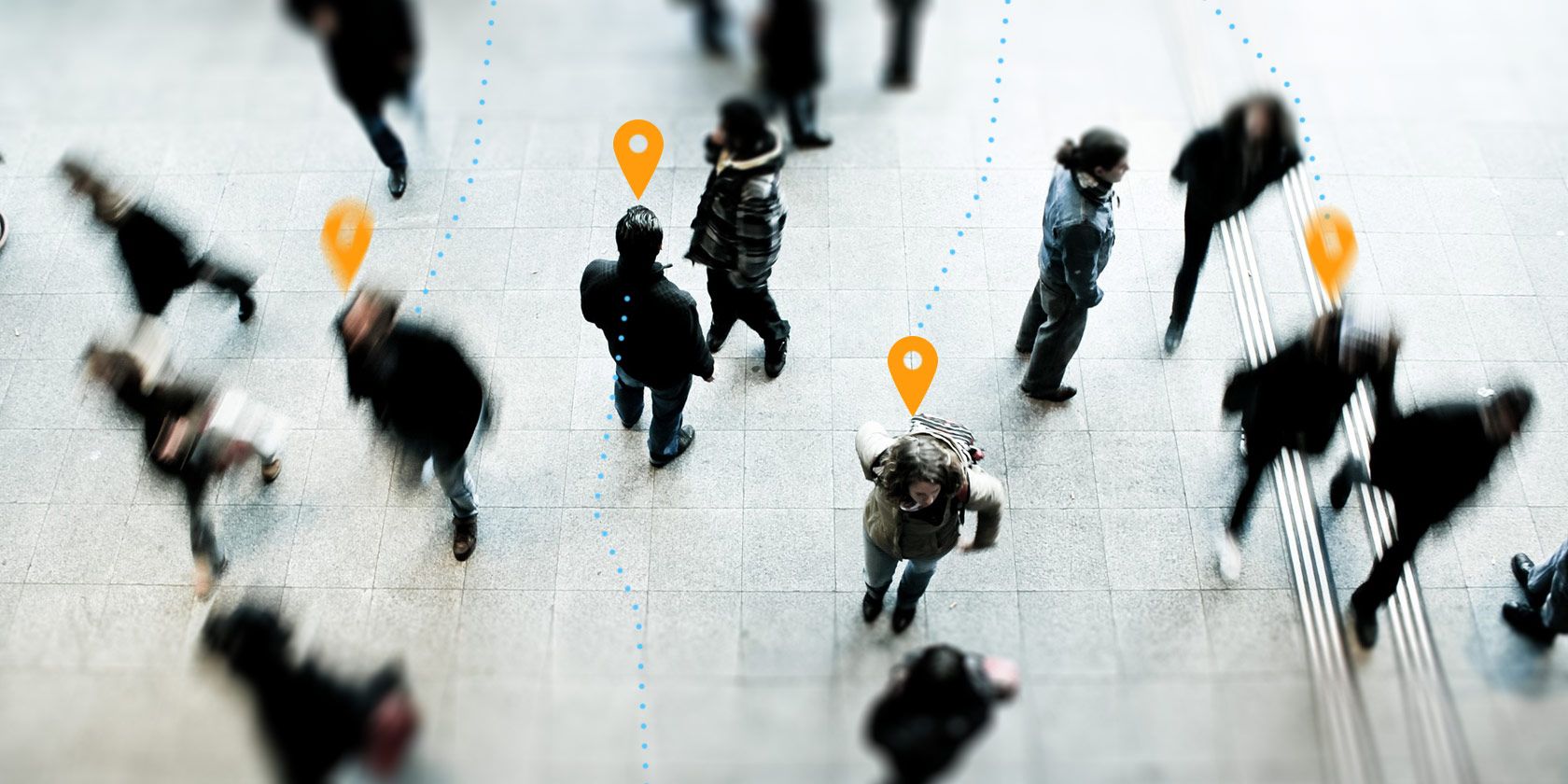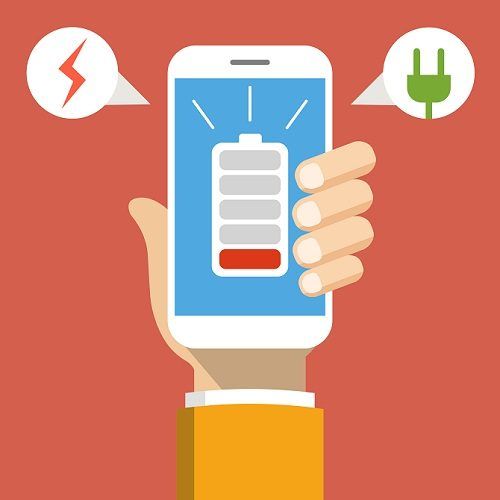These days, it's common knowledge that your phone and computer are tracking your location. Most people don't appear to care. They think the benefits of location tracking outweigh the security and privacy implications.
You can make the argument they're right. Services such as Cortana and Google Search are not as powerful if they can't monitor your movements. However, you might be less aware of other ways some companies are tracking your location. Often, they use underhand tactics and collate information without you knowing. They are tracking you purely for self-interest.
Here are a few ways you probably don't realize your whereabouts are being tracked.
1. Your Android's Battery
Yes, your smartphone has a range of GPS and location-sensitive hardware. However, you can turn off most of it. Your phone won't be as useful, but at least app developers won't know where you are every second of the day.
Or will they?
In 2015, researchers at Stanford University discovered a surprising and worrisome way that your phone is constantly revealing information about your location: the power consumption.
Unlike GPS and Wi-Fi tracking, information about battery drain is freely available to all apps. They don't require any special permissions. Amazingly, the team found its method of location tracking worked with 90 percent accuracy.
But how does it work?
Simply, a phone uses more power the further it is from a communications tower. It also uses more juice if buildings and hills interrupt the line-of-sight. If a hacker monitors the power usage over a five-minute period, location and movement are instantly revealed.
Thankfully, the new method still has one major drawback: hackers need a pre-existing power consumption profile of an area before they can correlate a random person's movements. It's certainly possible to create, but it's also time-consuming.
"If you take the same ride a couple of times, you'll see a very clear signal profile and power profile. We show that those similarities are enough to recognize among several possible routes that you're taking this route or that one, that you drove from Uptown to Downtown, for instance, and not from Uptown to Queens."
-- Yan Michalevski, Stanford Researcher
But how long will it be until 3D cities on Google Maps and other terrain mapping tools become reliable enough to predict the usage? One suspects the turning point is imminent.
2. Your Car's Entertainment System
Right now, there is an ongoing war between Google, Apple, and the car manufacturers for control of your in-car entertainment hub. Services like Android Auto and Apple CarPlay have led the way in the last couple of years, but manufacturers are starting to fight back.
For example, Ford and Toyota have founded a group called the SmartDeviceLink Consortium. In broad terms, it's an app store made by car manufacturers that runs on any vehicle. Publicly, they say they want to create a seamless user experience for drivers. Privately, it's all about money.
If you're using Google or Apple apps, the manufacturers are losing vital data. Location data means ads, and ads mean cash.
"The lifetime value of a customer to a carmaker is typically around half a million dollars. That value comes from the sale of services and new vehicles. Lose control of the data, and they're losing out on some piece of that $500,000."
-- Roger Lanctot, Analyst with Strategy Analytics
By using manufacturer-designed apps, car makers can get their hands on location data more readily. They can recommend repair shops when you need to change a component, refer you to a local insurer if you have an accident, show you ads for deals in nearby grocery stores and a whole lot more.
3. Gas Stations and Carparks
Sticking with the theme of cars, manufacturers are finding a bunch of ingenious new ways to find out where you are. Even if you don't use a GPS system, they can easily establish your location. The problem is especially prevalent in electric cars.
For example, the BMW i3 records the car's 16 most recent charging locations, its 100 last parking spots, and the geographical coordinates every time the car is turned on or off. All the data is then sent to the car manufacturers, who in turn have admitted to sharing it.
Worryingly, car manufacturers are not following standard practices for protecting users' data. In 2014, the US Government Accountability Office investigated 10 car companies. It found five did not disclose why they were sharing location data, none gave customers a way to delete data, and there were huge variances in how long companies retained data.
4. Ultrasonic Signals
Some apps are tracking you using audio signals that your phone can pick up, but which are inaudible to a human ear.
No, this isn't a joke, nor is it a bad script for a low-budget sci-fi movie. This is happening on the streets of your city, right now.
The technology is ultrasonic cross-device tracking. Proponents of the technology can embed extremely high pitched tones in everything, and your phone picks them up. Over time, companies get a precise picture of where you've been, what you've seen, and how long you've spent in particular locales.
What do I mean by everything? According to research, you can find these "audio beacons" on websites, in retail stores, on road-side billboards, at bus stops, in airports, and in just about every other location you can think of.
Currently, an app needs access to your microphone if it wants to use ultrasonic cross-device tracking. This sounds like a bigger problem than it is. Although you -- security-conscious MakeUseOf reader -- won't blindly click "Allow" on every permission your phone asks for, many people will. Anyone who's not confident about using technology is a prime target for the sneaky tactics.
"If you're a company that wants to provide ultrasound tracking there is no other way to do it currently; you have to use the microphone. So you will be what we call 'over-privileged,' because you don't need access to audible sounds but you have to get them."
-- Vasilios Mavroudis, Security Researcher at the University of London
It sounds shady in its current form, but expect the technology to become more mainstream over the coming years, especially as use of ultrasonic data transfer grows. Once a dedicated API for the technology is available, users can opt in or out. For now, go through every app on your phone and make sure it's only got the permissions it needs.
Does Location Tracking Concern You?
I've shown you four ways companies are tracking your location without your knowledge. The most troublesome aspect is the purpose of the tracking: in almost every example, the primary benefit is to the tracker rather than the tracked.
It raises questions of trust. Should you believe car manufacturers when they say they want to offer you a seamless customer experience? Does your favorite mobile game really need access to your microphone? And why hasn't Android put a stop to open power consumption monitoring? In all cases, it's because the status quo benefits them, not you.
Are you worried about the future of location tracking? Do you know some sneaky ways that companies are monitoring you that I've not discussed? As always, you can leave all your opinions and thoughts in the comments below.



